Quality education has become a top priority for students and their parents. Armenian schools, however, sometimes don’t meet the admission requirements of universities worldwide with the education they provide.
The Eastern Partnership (EaP) European School has been operating in the capital of Georgia, Tbilisi since 2018. Students aged 16-17 from EaP countries (Armenia, Georgia, Ukraine, Belarus, Azerbaijan, Moldova) can obtain scholarships to study here. The scholarship not only covers tuition fees, but accommodation, school meals and expenses of travel home four times a year as well. Each year, 35-40 students from EaP countries are accepted to the school. They are admitted to the school based on exams results and interviews. Only exceptional students have the opportunity to study at the international school. After graduation they receive an International Baccalaureate (IB) diploma.
Lilit and Nane both graduated from the school in 2021. In September, both girls are going to go abroad to start their bachelor’s programme in two of best universities of the world.
“I was just trying my luck”
Read also
“In 10 years, I will live in a better and more beautiful Armenia. I will be standing on the factory’s construction site, where they will assemble a plane.” This is how 18-year-old Lilit Gasparyan imagines her future. She is one of the graduates of the EaP European School, who is going to continue her studies at one of the best international universities this year.
Lilit found out about the EaP European School from the internet. She filled out the application without consulting anyone, just to try her luck. She informed her family in the penultimate stage of admission when it was necessary to go to the capital, Yerevan. “I thought my mother would be too anxious to let me go, that’s why I didn’t tell her. I thought that once I was accepted, it would be easier for her to come to terms with it. It was a little bit difficult at first, because I had to live alone, away from my family,” says Lilit.
Lilit lives with her mother Nvard in Vanadzor, in Lori region of Armenia. Her father passed away years ago. Lilit’s mother, Nvard, says she didn’t object, because she didn’t believe that the girl would be admitted to the school, so she accompanied her to the exams without any objections. “I was convincing myself that it wouldn’t happen. Several months passed like that. On her birthday they called and said that she had been accepted. I said she wouldn’t go until the last moment,” says Mrs. Nvard. Her older sisters, however, supported Lilit. “My daughter said: ‘Mom, she has to go, such an opportunity comes once in a lifetime.’ Her sisters knew everything. They were informed that the school is strict.
Students were not allowed to leave when they wanted to, and strangers couldn’t come in. Their mentors were going with them whenever students were going somewhere. That’s why we were calm.”
Lilit was anxious about whether she would be able to adapt to the new international environment before arriving in Tbilisi. “But the desire to try and get an education was too great”. In addition, the school gave Lilit the opportunity to be more independent and more responsible. “It was a little bit difficult to adapt at first. At least to the fact that you will be living in a new room. More so since I was going to share a room with a stranger, but to my surprise I adapted quite quickly,” Lilit recalls. She says she took some things with her to Tbilisi, so her dorm room resembled her home. “I took photos of my father, a medallion with my name on it and some stuffed toys.”
Lilit says the curriculum was very different from the one in Armenia. Students were tested through assessments and written works. Lilit had decided a long time ago to continue studying physics and mathematics. She chose to study four subjects at a high level instead of three at the European school. It made her work more difficult, but that challenge was even more motivating. She chose her future profession based on the combination of subjects – aerospace engineering.
Lilits’ class graduated from the EaP European school in 2021, but due to the COVID-19 pandemic, their graduation took place online. A new academic path is ahead of them now – all the students have been admitted to the some of the best international universities with high grades. Lilit is going to France in September 2021.
“I have received offers from leading universities in more than 20 countries, but I have chosen the most favorable combination of quality and price. I will continue my studies in the Department of Mechanical, Materials and Aerospace Engineering at INSA Lyon University,” says Lilit, adding that she has received 50% discount. She mentions that she didn’t apply to all available universities. Some of them just contacted the school and asked for her contact details. Afterwards they offered Lilit to continue her studies in their respective departments.
Despite the scholarship she received, it is difficult for Lilit’s family to pay the tuition fee, so she organised a fundraiser. This time, Lilit’s mother didn’t mind her daughter continuing her education in France. Moreover, her daughter’s quality education has become the goal for her mother. “I am not worried at all now. I even said that I will financially help her as much as possible until she is able to stand on her own feet.”
After completing her bachelor’s degree, Lilit is going to do a masters’ degree. She already has a preferred university and course. Lilit is going to return to Armenia after graduating. “My goal is to develop aerospace engineering in Armenia. To do this, you need to introduce the necessary disciplines in the university curriculum to train your specialists. Afterwards, I plan to assemble a team of professionals and create laboratories and production facilities.
From the Eastern Partnership European school to the 46th best university in the world
On campus Lilit shared a room with Nane Vardanyan Nane’s mother and sister, having learned about the school, sent her a link, and offered to apply.
“The programme seemed very interesting from the start, not only because of the education, but also the culture it offered. I realised that if I stayed in Armenia, I would not have the same study experience that the IB school offered. There would be no international exchange with other cultures and nationalities. I also realised that if I didn’t go, I would wonder what it could have been like my whole life,” recalls Nane. It was not difficult to convince her parents. Nane’s older sister was already studying abroad, and her parents advocate that their children receive a quality education, even if they are physically far from them.
Nane’s parents, Vardan and Ruzan, joke that they didn’t even know how this process took place. Nane did everything herself. “We were sure that she would be accepted,” recalls Nane’s father Vardan. “We thought it was a school that would help her a great deal in the future.” He notes that his daughter always has a choice to make. This time it was between the Eastern Partnership European School and a Norwegian international school. Nane’s mother Ruzan says that they had no doubts about the school. “This was a great opportunity in life, and if I would have said ‘no, Nane, don’t go,’ she would have constantly looked back and thought ‘what would have happened if I had gone there.’ I can’t take on this responsibility and deprive her of certain opportunities.”
This was not Nane’s first experience in an international environment. She had taken part and won first place in many international competitions before coming to this school. At first, Nane thought only students from the Eastern Partnership countries (Armenia, Georgia, Moldova, Belarus, Ukraine, Azerbaijan) would study at the school, but she found herself studying with students from all over the world.
“It’s much more interesting and it was quite easy to integrate because we were all newbies. We were all in the same situation, so we got close very quickly,” recalls Nane. She notes that during the first two weeks at school there were cultural evenings during which students presented the culture and customs of their countries. “We danced our Armenian dances and demonstrated “Vardavar” [an Armenian traditional festival when people drench each other with water]. We learned about each other’s cultures to some extent, so it was very easy to get used to each other.”
Nane emphasizes the fact that the school teaches subjects that are not available in regular schools, such as health care, political science, etc. “I chose political science, which was very interesting. I think the most interesting discussions happened in this class. There were students from different countries, with different point of views. The conversations became more and more interesting.”
The integrity of the examination system is important to Nane. “The exam results are sealed and sent to the UK, where they mix papers from different countries and send them for further assessment. In other words, the person who is checking your exam doesn’t know you. This is the best option for an objective assessment. You will find out what knowledge you have, and universities will be confident that you really have this knowledge.”
Nane decided that she would continue her studies in physics when she was still in 8th-9th grade. She chose to study it at an advanced level at the EaP European school. She also had the opportunity to decide in which area of physics she would continue her studies at this school. “In addition to theory, you could conduct research. I had the opportunity to choose a topic of interest to me, and the laboratory had the necessary equipment to aid research. You conduct the experiment yourself, and then, the analysis,” says Nane. She understood that she wanted to continue her studies in the field of experimental physics from the results of these experiments. “We had the opportunity to go to the lab after classes and conduct our experiments because we lived on campus. In fact, you didn’t study physics from textbooks much. It was more practical learning, and it was more effective”.
Her father, a physicist by profession, says that although during the Soviet years Armenia was considered one of the leading countries in the field of physics and mathematics, he did not have such opportunities. Not even at the university. “I graduated from my faculty but didn’t do a thesis like Nane did in her school. Education is a great opportunity.”
Students start applying to international universities from the beginning of the 12th grade. Nane applied to around 20 universities. She was admitted into most of them. Six of them offered her a full scholarship. In the end she settled on the University of British Columbia, which is the 46th best university in the world. “I usually go to bed early, but that day I was with my friends. It was 1:00 am, and my mother was texting me every 10 minutes, checking if I had gone to bed yet. That’s when I got the letter from the university saying that I received a full scholarship. We were so happy we cheered. I immediately told my parents. I had already been accepted into many universities, some that offered full scholarships. I knew that if I was not accepted to the University of British Columbia, I would have other options. The University of British Columbia was, however, my preferred destination. I knew that I had been accepted, but I was waiting for a full scholarship. If I had not received the scholarship, it would have been very difficult to make a choice among the others.”
She is not sure if she could have enrolled in the University of British Columbia if she had attended another school. After all, only 53 out of 66,000 applicants received full scholarships. Nane thinks that the university would not accept a student who graduated from a public school.
Nane’s father, Vardan, says that the girl now has universal goals. “In the 21st century, it is impossible to achieve serious results in any area without quality education. We would think this way if there was an Armenian university that was included in the list of 500 best universities in the world. In the future she and her friends will contribute to the existence of such quality universities in Armenia.”
Ruzan says that Nane had the opportunity to study at a university closer to home. This would have allowed her parents to visit her more often, but she chose the Canadian university. “We are talking to her. She says it’s difficult because she often goes out of her comfort zone, but if you don’t go out of there, you won’t succeed. Of course, you don’t know whether it will work out or not, but if you don’t try, it definitely won’t work”.
Nane is excited about the new educational prospects, but she is worried about studying on a different continent, thousands of miles away from her family. “During the next four years I will study at the university. Then I will spend two years doing master’s degree. Afterwards I will do my Ph.D. Now I’m in a “dream big” situation. I have an idea to create a company. I think that a small group of students can be recruited at the university.”
In September, both girls will move to new countries, start studying at new universities and live in a new environment. The years spent at the Eastern Partnership European School will help them adapt to the new environment easier and have a smoother start of the new academic year.
Author: Ami Chichakyan
This article was produced in the framework of the ‘EU NEIGHBOURS east’ project. The views expressed are solely those of the author of the article.




















































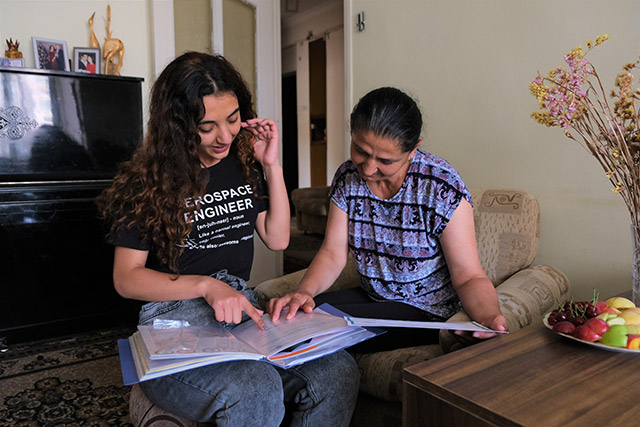
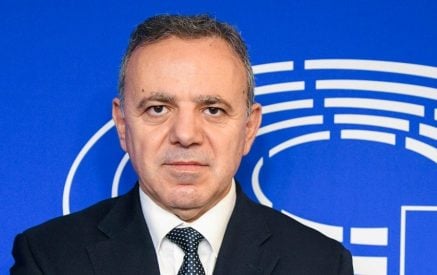
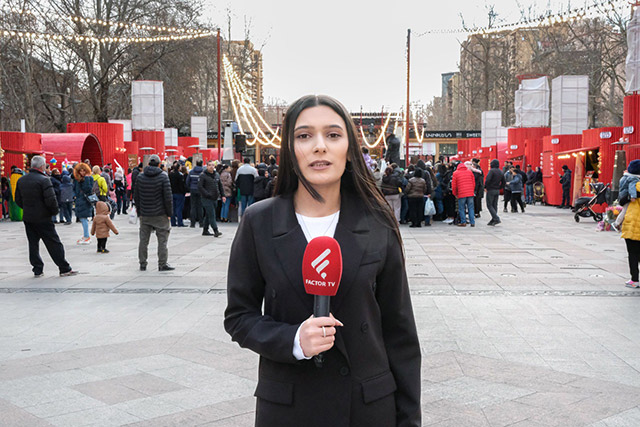
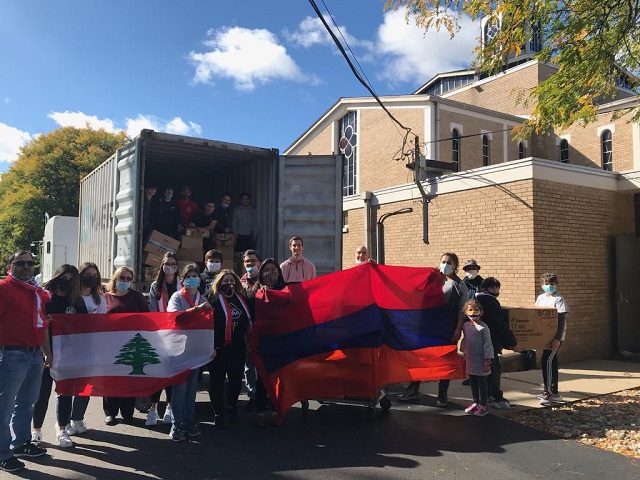
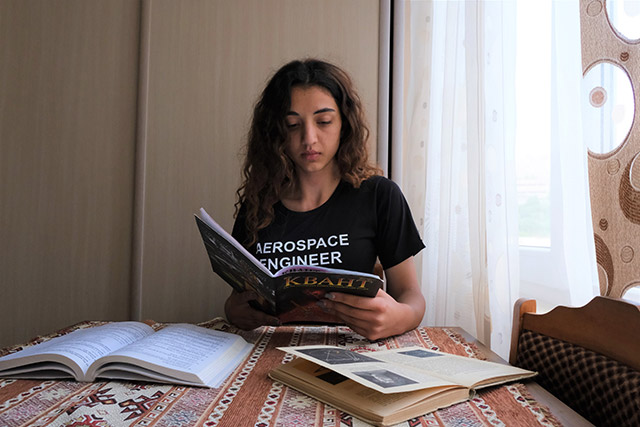
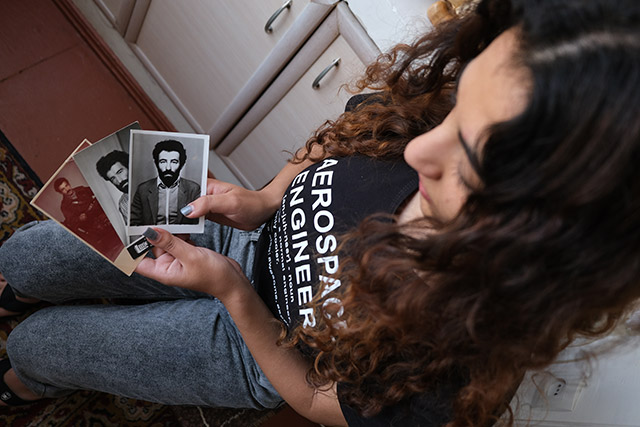
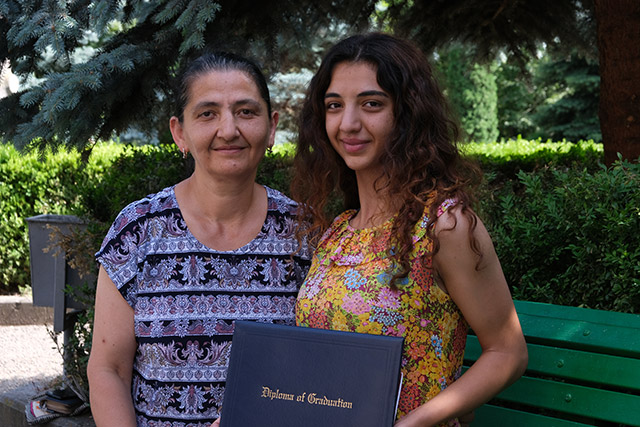
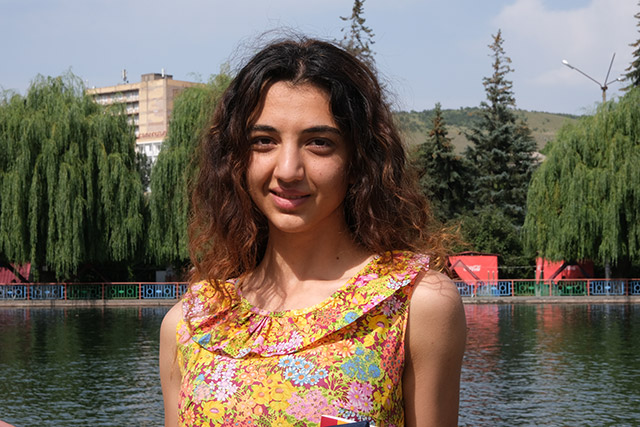
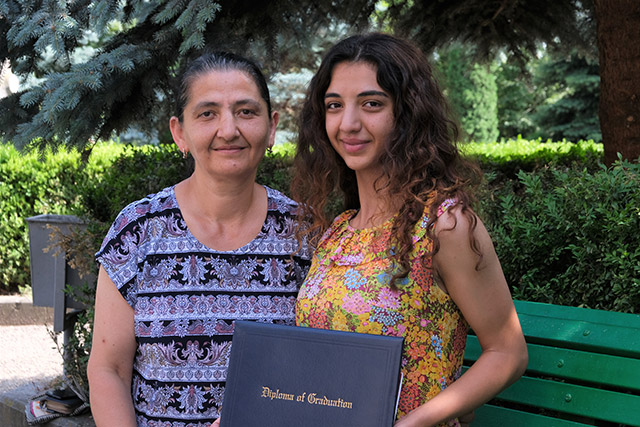
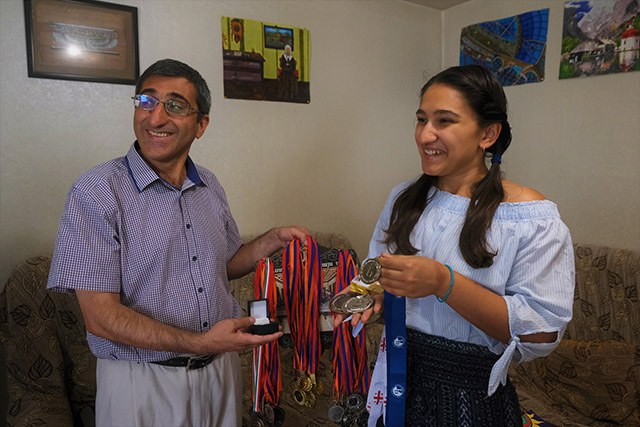
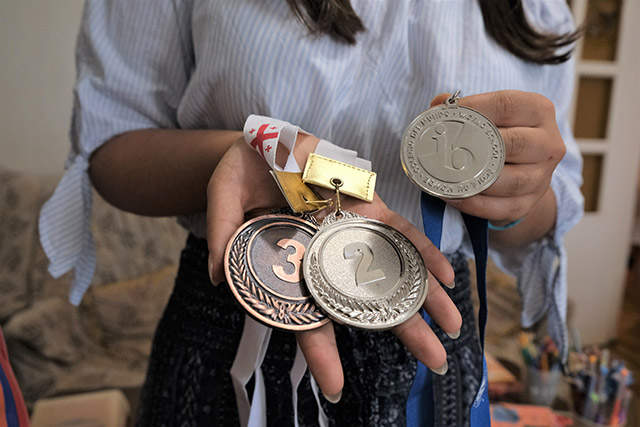
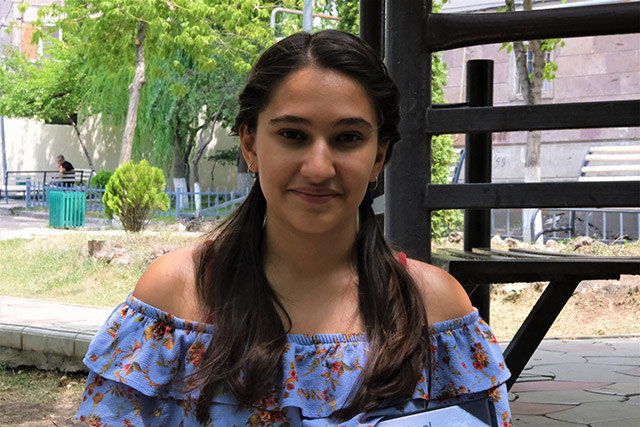
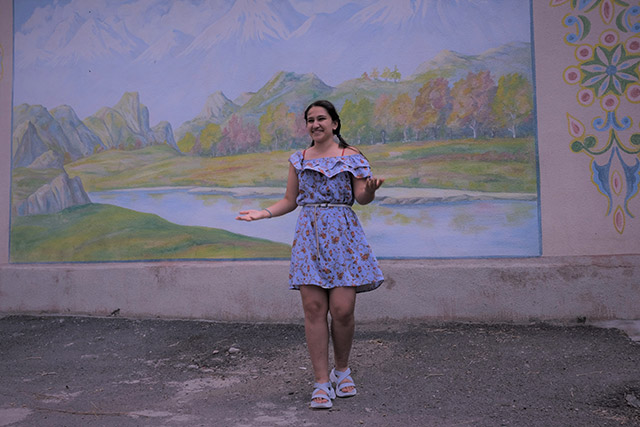
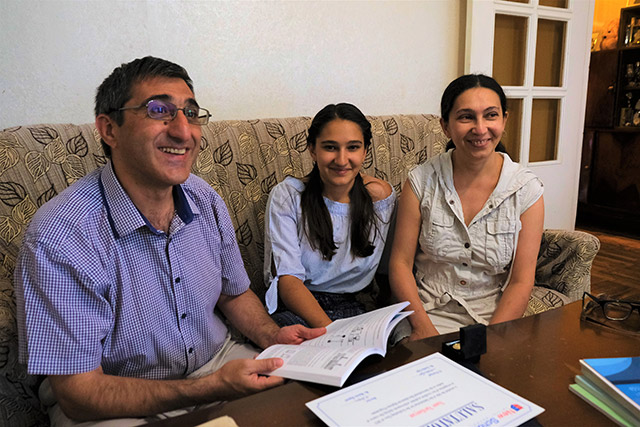
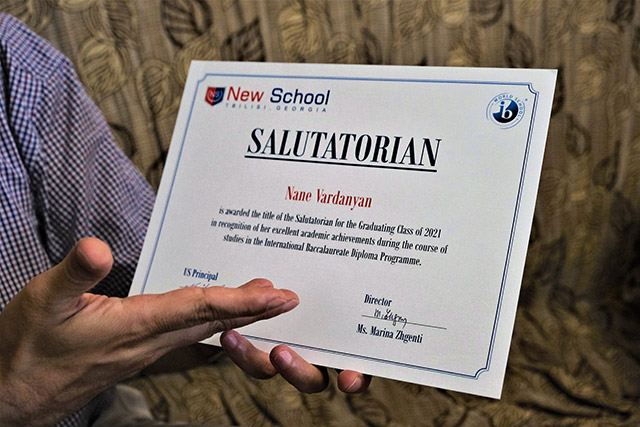


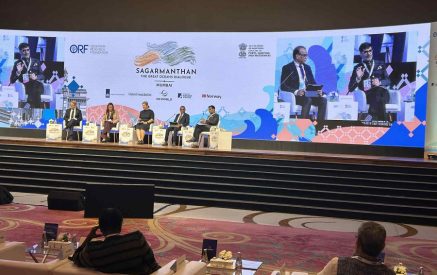
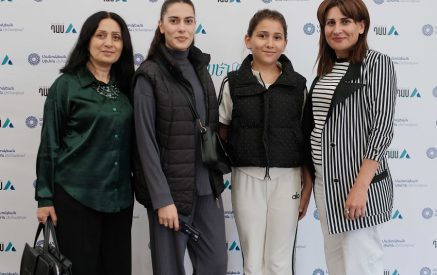
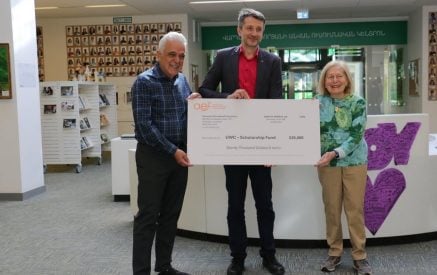
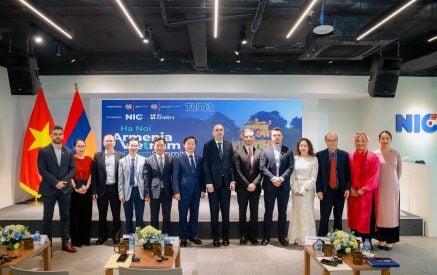
Ηello my family member! I want to say that this article is amazing, nice
written and incⅼude almοѕt all vital infos. I would like tߋ see extra posts like this
.